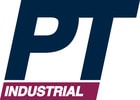
AC (alternating current) and DC (direct current) hydraulic power units (HPUs) are both used to provide the necessary hydraulic pressure to operate various machinery and equipment. The main difference between these two types of HPUs lies in the type of electrical power they use and their respective characteristics.
- Power Source:
- AC Hydraulic Power Unit: These units operate on alternating current, which is the standard form of electrical power supplied by most utilities. AC power can be easily generated, transmitted, and transformed, making it widely available.
- DC Hydraulic Power Unit: These units operate on direct current, which is typically produced by sources such as batteries, solar panels, or rectifiers that convert AC power to DC. DC power is often used in applications where portability or remote operation is required.
- Voltage and Frequency:
- AC Hydraulic Power Unit: AC power can have varying voltage levels (e.g., 120V, 240V, 480V) and frequencies (e.g., 50 Hz, 60 Hz) depending on the region and application. AC hydraulic power units are designed to accommodate these variations.
- DC Hydraulic Power Unit: DC power typically has a fixed voltage level, often determined by the battery or power source used. The voltage level remains constant, but the unit’s design can vary based on the voltage of the DC source.
- Control and Regulation:
- AC Hydraulic Power Unit: AC HPUs can be controlled using various methods such as motor starters, variable frequency drives (VFDs), and other electrical control systems. AC power systems are well-suited for applications that require precise speed and pressure control.
- DC Hydraulic Power Unit: DC HPUs can also be controlled using various methods, but they may require different types of control components compared to AC systems. DC systems are often used in applications where precise control is required in remote or off-grid locations.
- Efficiency and Maintenance:
- AC Hydraulic Power Unit: AC motors are known for their high efficiency and reliable performance. AC systems generally have a longer operational life and require less maintenance compared to some DC systems.
- DC Hydraulic Power Unit: The efficiency and maintenance requirements of DC systems depend on the quality of the components used and the application. Proper battery maintenance is crucial to ensure consistent performance in DC systems.
- Application Suitability:
- AC Hydraulic Power Unit: AC systems are commonly used in industrial applications where a stable power supply is available. They are suitable for a wide range of applications, from heavy machinery to precision equipment.
- DC Hydraulic Power Unit: DC systems are often chosen for applications where portability, remote operation, or power independence are important factors. They are frequently used in mobile equipment, marine applications, and locations with limited access to AC power.
Ultimately, the choice between AC and DC hydraulic power units depends on factors such as the application’s requirements, power availability, control needs, and environmental conditions. Both types have their advantages and are tailored to specific use cases. PT Hydraulics has a complete range of fully customisable BOSS AC and DC Hydraullic power units to suit a wide variety of applications in addition to stocking a complete range of pre-built units. To find out more visit https://www.bosshydraulics.com.au/products/boss-black/dc-ac-power-packs/
